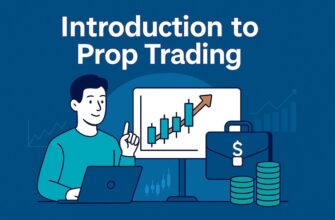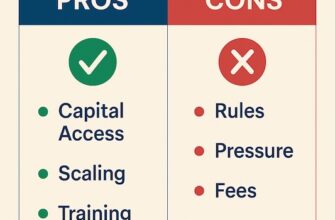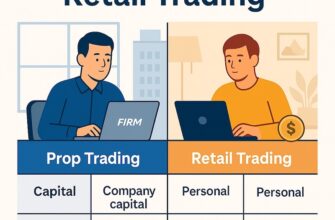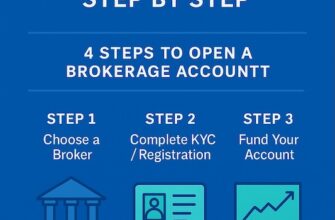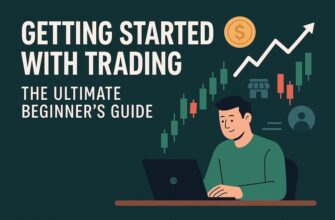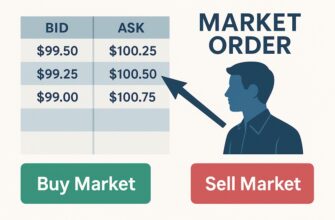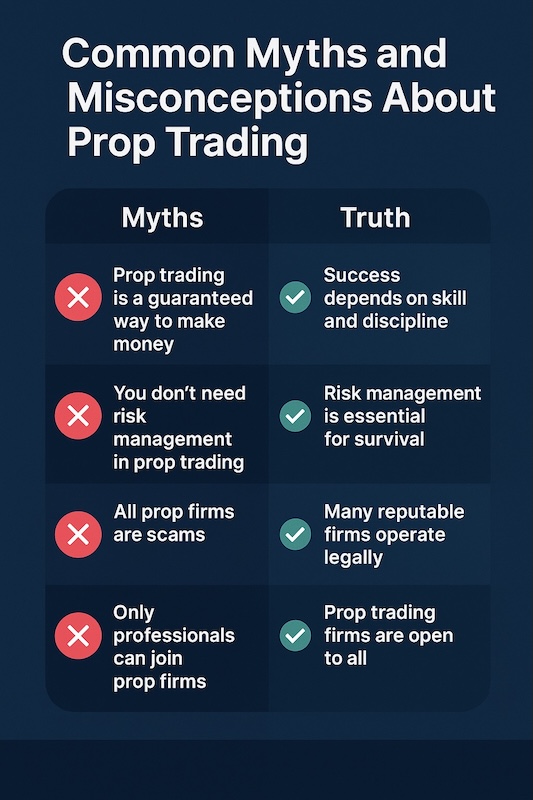
Proprietary trading, better known as prop trading, has exploded in popularity in recent years. Online firms now advertise “funded trader programs,” flashy profit splits, and quick access to six-figure accounts. Along with the growth, however, comes a wave of prop trading myths and misconceptions about proprietary trading that confuse beginners.
Some of these myths are harmless exaggerations, while others can lead new traders into poor decisions or unrealistic expectations. In this article, we’ll debunk the most common prop firm myths and reveal the truth about prop trading.
Myth 1: Prop Trading Is a Guaranteed Way to Make Money
One of the most dangerous misconceptions is that joining a prop firm is a shortcut to easy wealth. Ads sometimes make it sound like getting funded equals automatic success. Many traders believe funding ensures success, but in reality, there are trade-offs. For a balanced view, see Pros and Cons of Prop Trading.
Reality: Prop trading provides access to capital, but performance still depends entirely on the trader’s skill, discipline, and mindset.
- High failure rates: Most traders fail their first prop firm challenge. Even those who pass often struggle to stay consistent.
- Market risk doesn’t disappear: Whether you trade your own funds or firm funds, markets remain unpredictable.
- Pressure increases: Knowing that you must follow strict rules (drawdowns, daily limits) adds stress that can hurt performance.
Key point: Prop trading is an opportunity, not a guarantee. It can accelerate growth if you already have an edge, but it won’t magically turn losses into profits.
Myth 2: You Don’t Need Risk Management in Prop Trading
Another myth suggests that because you’re trading with a firm’s money, risk management isn’t important. Some beginners even assume the firm will “cover” their mistakes. Risk is always present in trading, whether you use your own funds or firm capital. A clear example of how costs and risks interact is in Spread Explained in Trading.
Reality: Risk management is the foundation of surviving in any trading environment.
- Rules are strict: Prop firms set daily loss limits and maximum drawdowns. Break them, and your account is shut down.
- Capital is conditional: You don’t “own” the firm’s money — it’s allocated based on your ability to manage risk.
- Career risk: Even if financial losses don’t directly hit your personal account, repeated failures damage your reputation and opportunities with other firms.
Example: A retail trader who risks 10% on every trade can blow up a $5,000 account quickly. At a prop firm, the same reckless approach will trigger rule violations and disqualification.
Key point: Good risk management isn’t optional — it’s the very reason prop firms exist. They want disciplined traders, not gamblers.
Myth 3: All Prop Firms Are Scams
Skeptics sometimes claim that every prop firm is a scam. This misconception usually comes from traders who lost money on evaluation fees or who didn’t fully understand the business model. While some scams exist, many misconceptions come from broader trading myths. To see how these beliefs mislead beginners, check Most Common Trading Myths Debunked.
Reality: While some shady firms exist, many legitimate prop firms have been operating successfully for years.
- Legitimate firms: Well-known names like FTMO, Topstep, and The5ers have funded thousands of traders and paid out millions.
- Business model: Firms earn money through evaluation fees, profit splits, and sometimes training. This is transparent and legal.
- Red flags: Scam firms usually promise “instant funding” with no challenge, no rules, or unrealistic guarantees. They often lack transparency about payouts.
Key point: Not all prop firms are scams. Do your research, check reviews, and avoid firms making promises that sound too good to be true.
Myth 4: Only Professionals Can Join Prop Firms
Another misconception is that you must already be a Wall Street veteran to join a prop firm.
Reality: Modern prop trading firms are open to anyone willing to take their challenge or training.
- Evaluation-based access: Most online firms let beginners try evaluations. Passing proves skill, not credentials.
- Skill > background: Firms care about consistent profitability and risk control, not your resume.
- Global access: Remote prop firms allow traders from all over the world to participate — you don’t need to live near financial centers like New York or London.
Example: A college student with discipline and practice can pass a challenge and trade firm capital, even without a finance degree.
Key point: You don’t need to be a professional, but you do need to treat trading professionally.
The Truth: What Prop Trading Really Is
So what is the truth about prop trading? It’s a funding model — not a get-rich-quick scheme, not a scam, and not exclusive to elites. Understanding what prop trading really involves starts with comparing it to independent trading. Read our guide on Prop Trading vs Retail Trading for context.
- Access to capital: Prop firms give traders the chance to manage larger accounts than they could personally afford.
- Rules and discipline: In exchange, traders must follow strict risk management rules and accept profit splits.
- Opportunity vs responsibility: The firm provides the capital, but success depends on the trader’s skill and discipline.
Think of prop trading like joining a sports team: the club provides equipment, facilities, and coaching, but you still have to train, perform, and compete.
Key Takeaways
- Prop trading myths can mislead beginners into false expectations.
- There’s no guarantee of profit — success depends on skill and discipline.
- Risk management is critical; without it, traders fail quickly.
- Not all firms are scams — but careful research is required.
- Anyone can join a prop firm, but professionalism and consistency are required to succeed.
FAQ
Is prop trading a scam?
Not inherently. Many legitimate prop firms operate transparently. The scam risk comes from firms making unrealistic promises. Always research before joining.
Do you need to be an expert to pass a prop challenge?
No. You don’t need Wall Street experience, but you do need skill, practice, and discipline to pass strict evaluations.
Can anyone succeed in prop trading?
In theory, yes. But in practice, only disciplined traders with solid strategies and risk management succeed long-term.
What’s the biggest misconception about prop trading?
That getting funded guarantees success. Funding is just the beginning — consistency is the real challenge.

